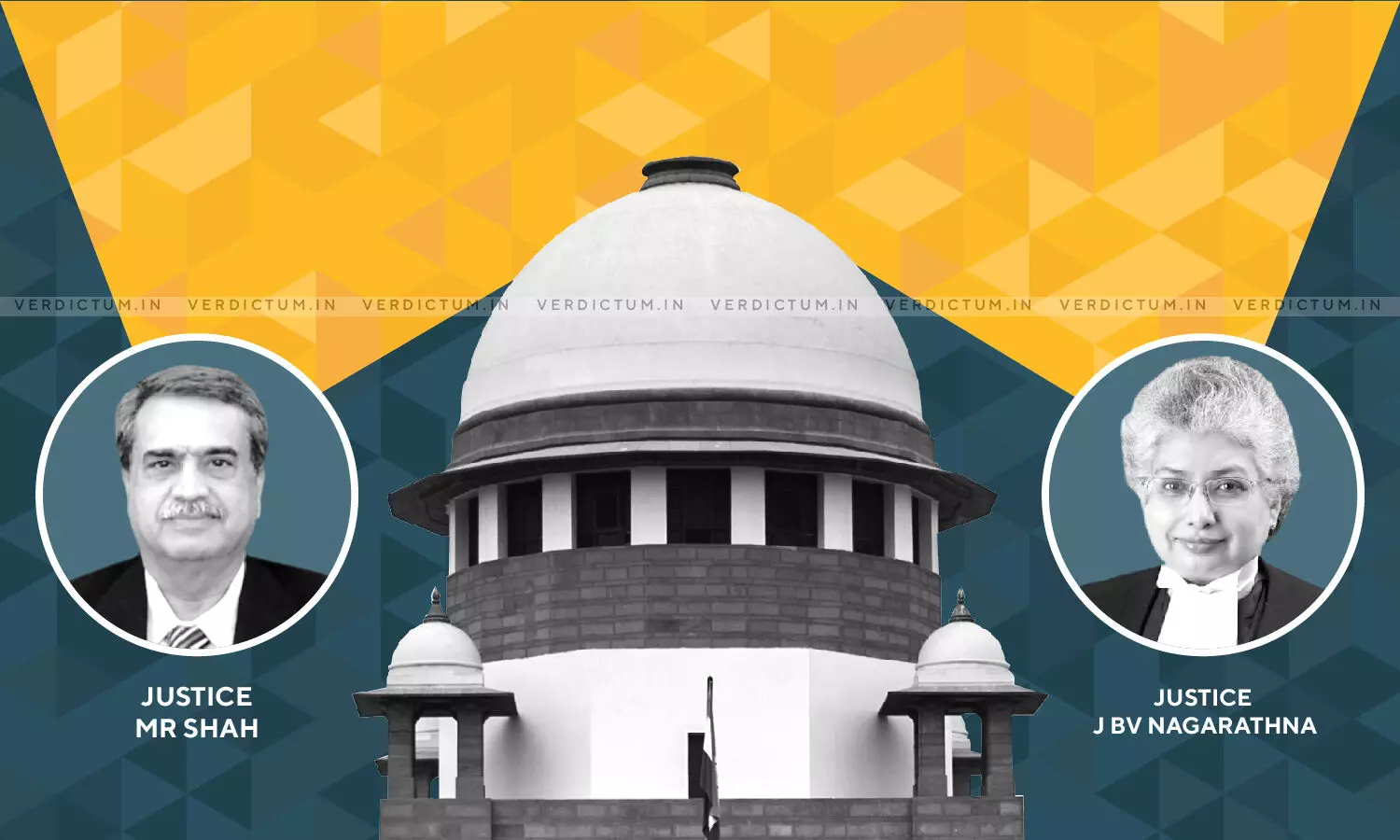
High Court Being The First Appellate Court Ought To Re-Appreciate Evidence In Appeal Against Order Of Acquittal - SC Reiterates
 |
|A two-judge bench of the Supreme Court comprising of Justice MR Shah and Justice B.V. Nagarathna has quashed a judgment of the Allahabad High Court since the High Court, as the First Appellate Court, had merely made general observations and failed to re-appreciate the entire evidence on record against an order of acquittal.
In this case, the Trial Court had acquitted the Respondents for offences punishable under Sections 354, 504, 506 of the IPC and Section 3(1)(x) and 3(1)(xi) of the Scheduled Castes and the Scheduled Tribes (Prevention of Atrocities) Act, 1989. The victim preferred an appeal before the Allahabad High Court which dismissed the said appeal. This impugned judgment of the Allahabad High Court was challenged before the Supreme Court.
Counsel T.V. George appeared for the Appellant while Counsel Adarsh Upadhyay appeared for the State of Uttar Pradesh and Counsel Shahid Anwar represented the Accused before the Apex Court.
The Supreme Court noted that the impugned judgment of the Allahabad High Court, which was being challenged, was of one page/paragraph.
The High Court without any further elaboration, re-appreciation of the entire evidence on record, had dismissed the appeal of the victim. According to the Court, the manner of dealing with a first appeal against the order of acquittal was incorrect. The Apex Court observed that the High Court had only made general observations regarding the deposition of witnesses. Instead, the High Court ought to re-appreciate the entire evidence on record since it was dealing with a first appeal. Being an appellate Court, the Allahabad High Court was even required to examine the reasoning provided by the Special/Trial Court, the Court noted.
The Court referred to Umedbhai Jadavbhai v. State of Gujarat wherein it was held that once the appeal is entertained against the order of acquittal, the High Court is entitled to reappreciate the entire evidence independently and come to its own conclusion. Ordinarily, the High Court would give due importance to the opinion of the Sessions Judge if the same were arrived at after a proper appreciation of the evidence. Against an order of acquittal passed by the Trial Court, the High Court would be justified on reappreciation of the entire evidence independently and come to its own conclusion that acquittal is perverse and manifestly erroneous.
Additionally, the Court highlighted the procedure to deal with, decide and dispose of a criminal appeal against an acquittal under Section 378 of the Code of Criminal Procedure, as stated in the plethora of judgments discussed in the case of Guru Dutt Pathak v. State of Uttar Pradesh.
Applying the above law to the facts of the case, the Supreme Court held, "...that decision of the High Court is totally erroneous as it has ignored the settled legal position. As observed hereinabove, the High Court has not at all discussed and/or reappreciated the entire evidence on record. In fact, the High Court has only made the general observations on the deposition of the witnesses examined. However, there is no reappreciation of entire evidence on record in detail, which ought to have been done by the High Court, being a first appellate court.
Thus, the impugned judgment and order passed by the Allahabad High Court was quashed and set aside and the same was remanded back to the High Court to decide the appeal afresh in accordance with law and on its own merits being mindful of the observations made by the Apex Court.
Click here to read/download the Judgment